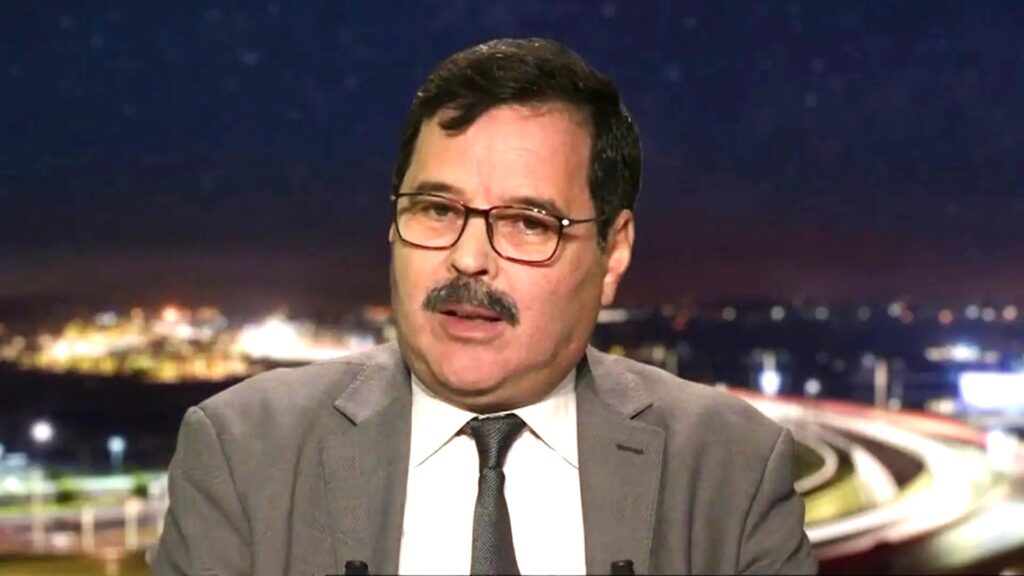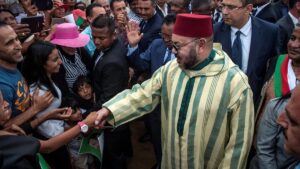Geography and history together deny “autonomy” in the Moroccan Sahara.

Talal Al-Saud Al-Atlassi (Moroccan writer and journalist)
The Polisario is entering its final phase as a separatist group. It faces two options: either dissolve and disappear, or transform into a political party that will merge with other political parties to establish autonomy for Morocco's Sahrawi territories. The territories, which the Polisario has been trying to separate from Morocco for half a century, have failed.
Crossing this difficult “period” may be long… it may be difficult… it may even be painful… or it may be smooth and short-lived… The leadership of Algeria – as the official sponsor of the Polisario – over the course of half a century will be the one who will decide the nature of the crossing, its timeframe, and its social and security cost to the Polisario and the region… What is certain, and cannot be mistaken by objective analysis, is that the separatist group’s lifespan has ended, and even exceeded its limit… This is what the international community is announcing and moving towards confirming through the United Nations through the Security Council at its meeting scheduled for the end of next October… or in upcoming meetings and in the form decided by the same meeting…
The international community, with a majority of more than 130 countries… a growing majority… “soon” to be joined by South Africa and Bolivia, who are part of the narrow circle supporting the Polisario… a majority, a state by state, by all standards… large and influential, medium and effective, or small and influential… has raised its voice demanding a peaceful, permanent and realistic solution to the Moroccan Sahara conflict, considering that its only serious basis is the autonomy proposal presented by Morocco and which it has convinced of… over the course of nearly two decades…
That majority is moving toward putting its convictions on the path to realization… UN Secretary-General Guterres, in a recently published report, emphasized “the need for a political solution to the conflict to halt it after it has dragged on for nearly half a century, threatening the security and stability of the region.” In his call, he never mentioned the word “referendum”… because it was the United Nations that dropped it from its vocabulary nearly two decades ago…
In the same vein, the US administration appears eager to provide conditions for implementing the autonomy proposal to resolve the conflict... and that administration, in the Security Council, holds the pen for drafting resolutions related to the Moroccan Sahara. In addition to President Trump's need to quell a conflict that is marginal to his priorities in dealing with raging international conflicts... he sees it as a mere riot... or, as King Hassan II once said, merely a "pebble" in the region's "shoe."
The autonomy proposal is today an international choice or an urgent international demand… for its peacefulness and realism, and because it allows Algeria to free itself, for half a century, from the burden of the illusion of a new “statelet” in the region, without any moral cost… which enables the international community to gain the Moroccan-Algerian integration and cooperation that the region needs, as a lever for peace and security in it and an incubator for international economic benefit from it… and it is a region whose security is threatened and rich in its resources…
All the countries with influence in international decision-making have not recognized the “paper republic”… neither the American administration, nor Russia, nor China, nor the European countries, nor Japan, nor the United Nations… All of them are bothered by Algerian hostility towards Morocco… They are “tired” by the tension between the two countries, which have their status in Africa, the Arab world, and the Mediterranean, which imposes on them precise and difficult exercises to maintain the balance of their relations with them… For decades… This is the case of France, which Algeria has narrowed its room for maneuver and balance… While, the same Algerian leadership has swallowed the American administration’s preference for Morocco over Algeria in considering its interests…
The American insistence on supporting Moroccan national rights is not merely a courtesy to Morocco. It is a policy that the administration of Democratic President Biden has not abandoned, and Republican President Trump is moving to implement it in the reality of the Western Sahara conflict.
President Trump dispatched Massad Boulos, his advisor for African and Middle Eastern affairs, to Algeria at the end of last July, to brief the Algerian leadership on the project to replace MINURSO, the UN forces in the Moroccan Sahara, with a new UN mechanism called “MINURSO.” MINURSO was tasked with monitoring the ceasefire and accompanying the referendum in the Moroccan Sahara. The United Nations has proven tangibly that holding the referendum is impossible. After nearly two decades of pushing the referendum option aside, and eighteen years after the launch of the “autonomy” proposal and its widespread international adoption, a proposal is now being formulated to create an international mechanism to accompany the implementation of an autonomy solution to the conflict.
The US administration is eager to end MINURSO's mandate and establish the MANSASU mechanism... at the Security Council meeting next October, to officially announce the UN's ownership of the autonomy proposal, in line with international support for it. This means establishing Moroccan sovereignty over the disputed Sahrawi territories, as the only framework within which the hoped-for solution to a conflict that has lasted half a century can be achieved... Thus, the illusion of secession falls into the dustbin of history, and the Polisario faces two choices: either follow its illusion into what it will throw itself into, or recover the original genes of its origins, in the early 1970s, before it was hijacked by Algerian President Houari Boumediene and transformed into a separatist structure... that is, join the process of establishing autonomy within a democratic dynamic within the political and social fabric of the inhabitants of Morocco's southern Sahrawi territories.
The UN General Assembly session, which opens on September 9, will be an opportunity to confirm the conclusion that the vast majority of member states support the autonomy proposal in approaching the Moroccan Sahara conflict, compared to a small number of states that are accommodating Algeria in their support for the Polisario, and this support is decreasing… UN discussions along these lines will feed into the Security Council meeting at the end of next October, creating within it an atmosphere of possibility for developing recent Security Council resolutions towards explicit adoption of the autonomy proposal, through the approval of the establishment of the “Manassau” mechanism…
Russia is not expected to exercise any “objection” higher than abstaining from voting on the resolution… unless there is a qualitative development in its position on the conflict in the coming weeks… which will likely bring Morocco and Russia closer together… and what is important is that the proposal becomes a resolution…
The approval of the new UN mechanism in the Moroccan Sahara does not immediately mean the end of the conflict… It means the beginning of a process to end it… A process that may be long or short depending on Algeria’s reaction… Rather, it is a progressive and unstoppable process, and the international momentum driving the autonomy proposal does not allow for the continuation of stagnation or a regression… The autonomy proposal is the key to a different future for the region in general, and a contribution to strengthening the international will to secure North Africa and the southern Mediterranean, and to create opportunities for development for all its peoples… Thus, Morocco will be in a positive position for itself and others. A different world, where the majesty of nature is embodied in its most beautiful forms, and adventure meets authentic Amazigh hospitality.






